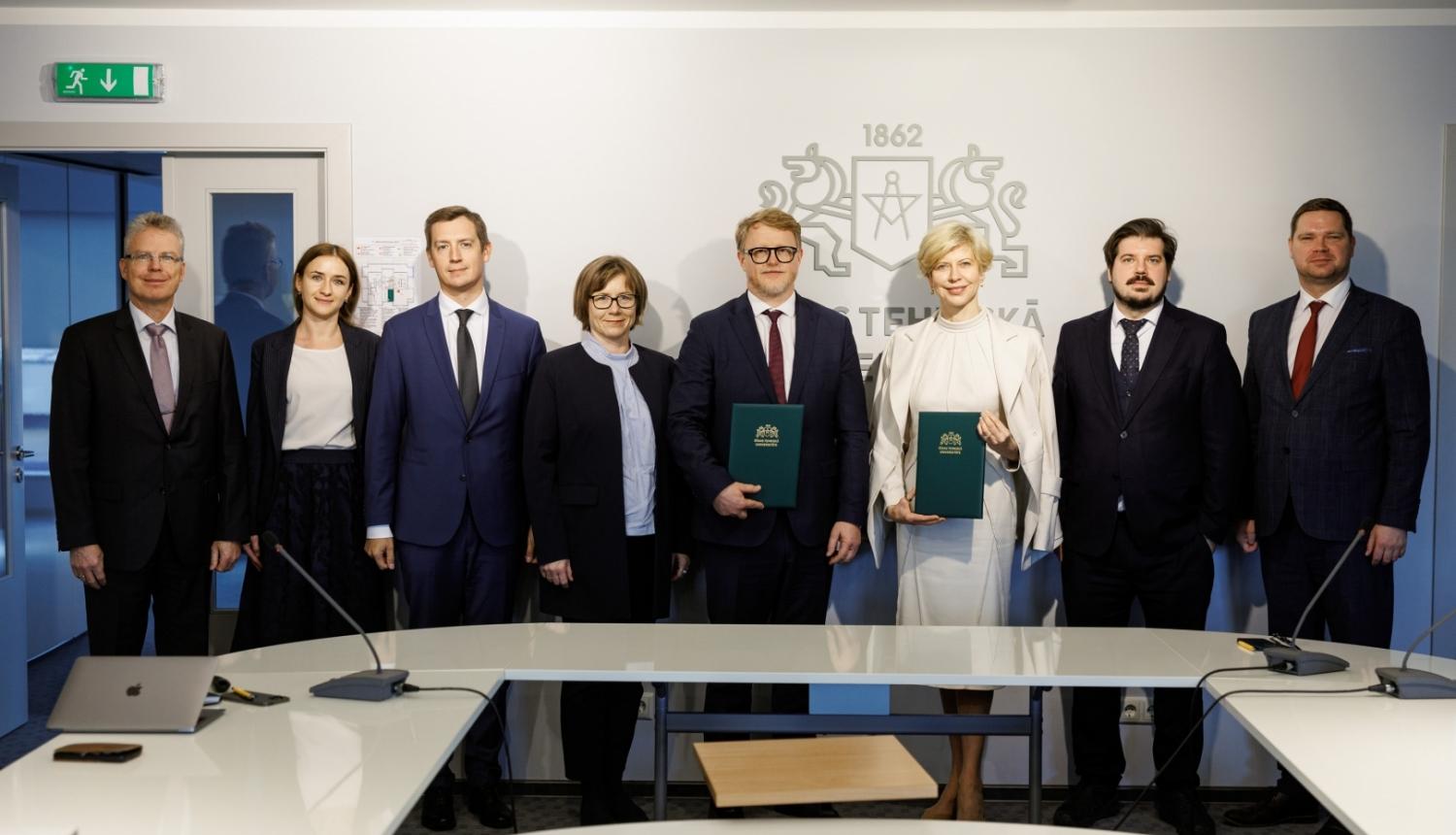To more flexibly plan budget allocation and purposefully prepare specialists needed for the national economy, Riga Technical University (RTU) is the first in Latvia to implement an institutional funding pilot project. On Wednesday, October 23, the Ministry of Education and Science (MES) and RTU signed a contract for the implementation of institutional funding.
With the change in the funding model, the principles of money distribution will also change, allowing the university greater freedom in determining the number of students admitted and integrating industry demand regarding graduate preparation. At the same time, it will ensure that the quality indicators of studies remain high and the dropout rate of students is low, as internal quality control and results orientation are fundamental conditions of this funding model. This will enable RTU to successfully integrate into the European education space and move closer to the governance model of Europe’s best universities.
“The introduction of institutional funding is a significant step in a targeted state policy aimed at strengthening our higher education institutions. The goal of the funding model is to create incentives for higher education institutions to focus on results, reduce bureaucracy, and create opportunities to attract broader funding from employers to cover study costs,” emphasizes Minister of Education and Science Anda Čakša.
Institutional funding will allow RTU to more flexibly determine the principles of study payment, specifying which students can study in fully state-funded places, which ones will pay a partial fee, and which will cover the full tuition fee. It is planned that during the pilot project, the number of RTU state-funded STEM graduates will increase, the proportion of students excluded without a diploma will decrease, and lifelong learning, funding attraction, and RTU’s strategic focus on STEAM (science, technology, engineering, arts, and mathematics) skill development will be promoted.
“This is a historically significant contract – we have been given a trust guarantee, but with that comes great responsibility. By changing the funding model, the state affirms that its established universities play a significant role in Latvia's development, as through research and the preparation of new specialists, we provide a substantial contribution to economic development. The institutional funding model makes this role and contribution of universities clearer and more understandable,” believes RTU rector Tālis Juhna.
The principles of the new funding model will apply to students who start their studies at RTU in the 2024/2025 academic year, and it will be approved by December 31, 2026.
The MES has developed the institutional funding model to improve and modernize the funding principles of state higher education institutions, strengthening the alignment of university results with the demands of the economy. The ministry envisions that in the future, the transition from the current budget seat calculation model to institutional funding will be planned in all state-established universities, which will have greater autonomy and broader opportunities to achieve set goals, receiving payment for results rather than processes. Sustainable development of the higher education system will be ensured, promoting quality higher education and employment, ultimately fostering Latvia's economic growth and competitiveness.
Photo: Toms Norde
